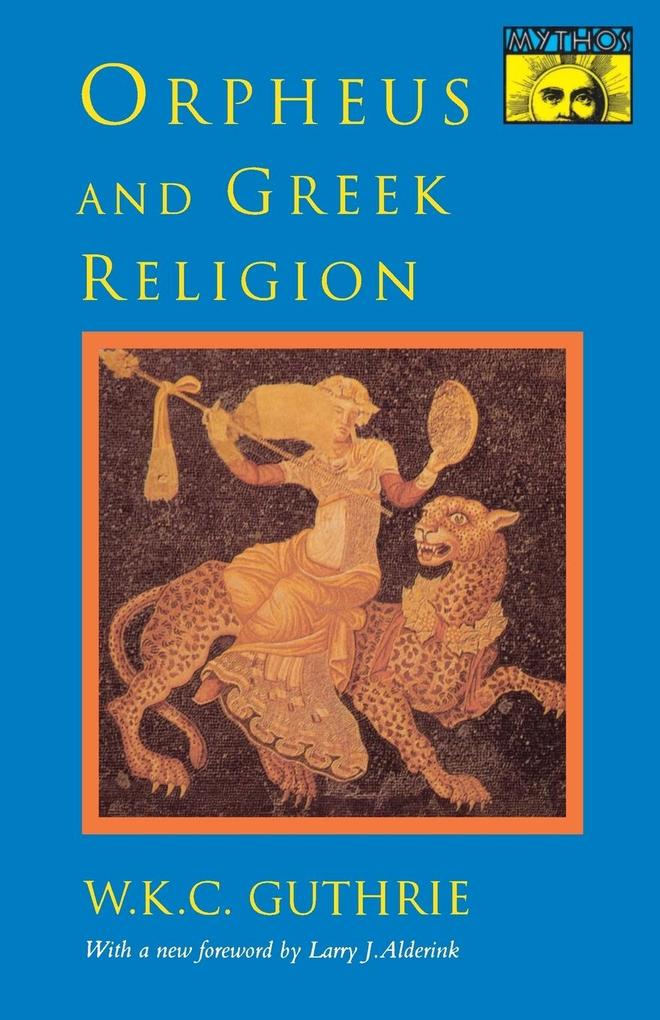
Zustellung: Mi, 23.07. - Sa, 26.07.
Versand in 5 Tagen
VersandkostenfreiBestellen & in Filiale abholen:
The tales told of Orpheus are legion. He is said to have been an Argonaut--and to have saved Jason's life. Rivers are reported to have stopped their flow to listen to the sounds of his lyre and his voice. Plato cites his poetry and Herodotus refers to "practices that are called Orphic." Did Orpheus, in fact, exist? His influence on Greek thought is undeniable, but his disciples left little of substance behind them. Indeed, their Orphic precepts have been lost to time.
W.K.C. Guthrie attempts to uncover and define Orphism by following its circuitous path through ancient history. He tackles this daunting task with the determination of a detective and the analytical rigor of a classical scholar. He ferries his readers with him on a singular voyage of discovery.
W.K.C. Guthrie attempts to uncover and define Orphism by following its circuitous path through ancient history. He tackles this daunting task with the determination of a detective and the analytical rigor of a classical scholar. He ferries his readers with him on a singular voyage of discovery.
Inhaltsverzeichnis
<TR>List of illustrations<TR>Foreword to the Mythos edition<TR>Preface<TR>Ch. IFamous Orpheus<TR>Ch. IIWhat Is Meant by Orphism?<TR>Ch. IIIOrpheus and His Story<TR>Ch. IVThe Creation and the Gods as Presented by Orpheus<TR>Ch. VThe Future Life as Seen by Orpheus<TR>Ch. VILife and Practices of the Follower of Orpheus<TR>Ch. VIIOrpheus and Other Greek Religious Thinkers<TR>Ch. VIIIOrpheus in the Hellenistic and Graeco-Roman World<TR>Bibliography<TR>Notes<TR>General Index<TR>Bibliographical Index
Produktdetails
Erscheinungsdatum
10. Oktober 1993
Sprache
englisch
Seitenanzahl
352
Autor/Autorin
William Keith Guthrie
Herausgegeben von
L. Alderlink
Verlag/Hersteller
Produktart
kartoniert
Gewicht
497 g
Größe (L/B/H)
216/140/21 mm
ISBN
9780691024998
Entdecken Sie mehr
Pressestimmen
[T]he books ascribed to Hermes ... fall into two divisions, the technical and the philosophical, which Fowden treats separately... [His] scholarly survery makes an excellent foundation for further study of points of detail and of paganism in general. Shadow
Bewertungen
0 Bewertungen
Es wurden noch keine Bewertungen abgegeben. Schreiben Sie die erste Bewertung zu "Orpheus and Greek Religion" und helfen Sie damit anderen bei der Kaufentscheidung.









